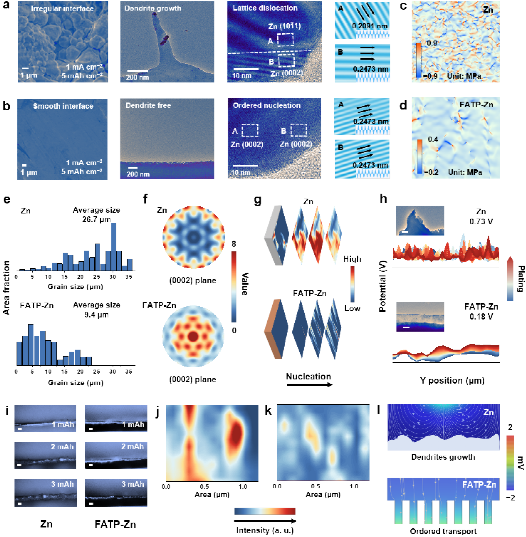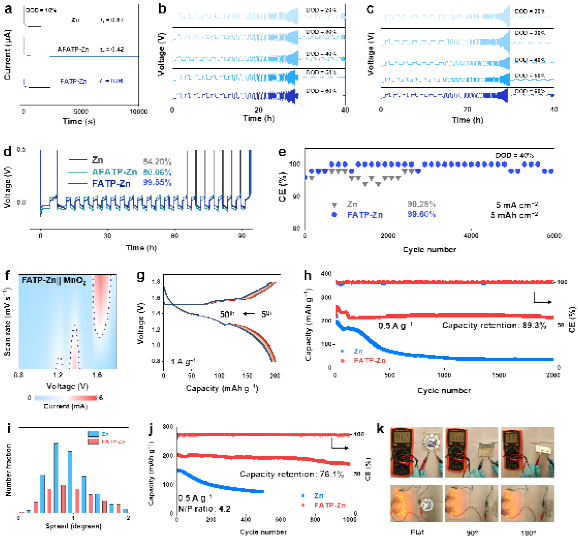On March 18th, Professor Liu Mingxian's team from the school of Chemical Science and Engineering, published groundbreaking findings in the prestigious international chemical journal Angewandte Chemie International Edition. Rechargeable zinc metal batteries (ZMBs) have emerged as highly promising energy storage devices due to their low operation potential, high power density, and specific capacity. Developing low-strain Zn anodes with refined grains and durable Zn (0002) epitaxial stacking is critical to mitigating strain-induced degradation and advancing high-performance ZMBs.
The team innovatively photopolymerized a highly crystalline fluorinated anthracene triptycene polymer (FATP) layer on commercial Zn foil, constructing ordered nanochannels (1.5 nm) that guide oriented nucleation and epitaxial stacking of the Zn (0002) texture. This anode engineering reduces nucleation energy (0.2 vs. 1.1 e⁻/Å3 for bare Zn) and grain strain (3.7 vs. 28.2 MPa), enabling refined Zn grains (9.4 vs. 26.7 μm) and preventing dendrite formation. Consequently, FATP-Zn||Cu cell achieves a high average Coulombic efficiency of 99.6% over 6000 cycles, while FATP-Zn||FATP-Zn cell shows stable plating/stripping after 5000 h. These findings indicate that FATP layer resolves strain-induced failure in ZMBs, enabling sustainable Zn (0002) stacking for high-energy and durable batteries.

Professor Liu Mingxian's team emphasized their dedication to advancing research on highly reversible electrode engineering, including exploring the energy storage mechanisms and practical applications of various materials in aqueous batteries.

Professor Liu Mingxian is the corresponding author, and Ph.D. candidate Zhang Da is the first author of the paper. This work was supported by the National Natural Science Foundation of China, the Shanghai Science and Technology Commission, and the China Postdoctoral Science Foundation.
In recent years, Professor Liu Mingxian's team has made a series of significant advancements in high-performance aqueous zinc batteries, particularly in the development of highly reversible Zn anodes and advanced organic cathodes. Through continuous exploration of innovative strategies, the team has significantly enhanced the energy density and cycling stability of zinc batteries. These efforts have enabled reliable and efficient energy storage, advancing renewable energy adoption and sustainable energy systems globally.
Paper Link: https://onlinelibrary.wiley.com/doi/10.1002/anie.202500380